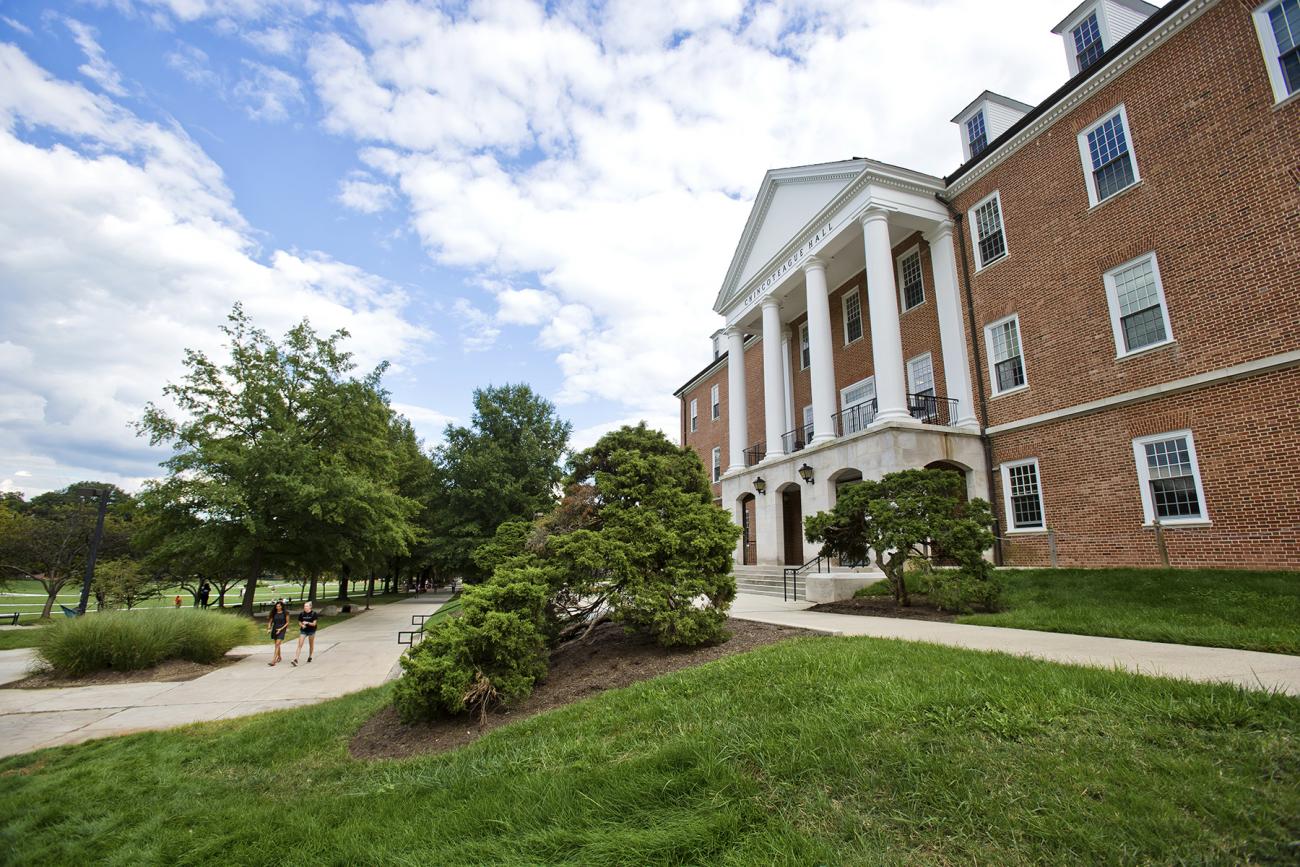
*Prospective applicants can contact the program at political-analytics [at] umd.edu () with any questions about the program or application process, coursework, professors, potential careers, or political analytics in general. All faculty in the program are also available to talk to students and prospective applicants.
*All Graduate School policies and requirements can be explored on their website. Graduate School information on APAN can be found here.
*Please visit the Maryland Extended Studies website for administrative information and details about attending graduate school at UMD, including credit hour rates. Program-specific information for APAN can be found here.
*The University offers many career development resources through the UMD Career Center. There is also a searchable database of internship and job openings at Careers4Terps.
*Some students may also be eligible for a financial aid package. Interested applicants should consult The Office of Financial Aid.
APAN does not currently provide scholarships or graduate assistantships through our program. However, see a few options below that may be of interest to some applicants. Additionally, there are at times teaching assistantships available in the GVPT Department, and competitive graduate assistantships are often available on campus, which students can pursue.
Scholarships
Social Science Research Council (fellowships and prizes)
American Statistical Association (fellowships and grants)
American Psychological Association (scholarships, grants, and awards in a variety of fields)
William T. Grant Foundation (grants in a variety of fields)
Cosmos Club Foundation (grants in a variety of fields)
Hispanic Scholarship Fund (funding and scholar program)
Smithsonian Institute (fellowships and internships)
National Institute of Justice (funding, scholarships, and awards)
Tillman Scholarship (for military/veterans and spouses)
Ruth Landes Memorial Research Fund (grants)
Hayek Fund (grants)
Point Foundation (for LGBTQ community members)
Queen-Nellie Evans Scholarship (for minority community members)
United States Institute for Peace (grants and fellowships)
Alpha Kappa Alpha Scholarships
SeniorCare: Aging Matters Scholarship
Other Support
Warrior Scholar Project (free skill bridge for veterans returning to the classroom)
FAFSA (U.S. Department of Education Federal Student Aid)
Minority Student Groups and Activism
Asian American & Pacific Islander (AAPI) Student Involvement
Interfaith & Spiritual Diversity Programs
Multiracial & Multicultural Student Involvement
Native American Indian Student Involvement
Professional Associations
A number of professional associations are available for political data scientists. In addition to providing industry-approved information, these organizations often host professional conferences and workshops that we recommend students involve themselves in. Many of these organizations also have grant funds and discounted membership rates for students.
Some organizations include:
- APSA (American Political Science Association)
- MPSA (Midwest Political Science Association)
- SPSA (Southern Political Science Association)
- ICPSR (International Consortium of Political Science Research)
- AAPOR (American Association of Public Opinion Research)
- CIDCM (Center for International Development and Conflict Management)
- SoDa (Social Data Science Center)
- ASA (American Statistical Association)
- INSIGHTS Association
- COSSA (Consortium of Social Science Associations)
- COPAFS (Council of Professional Associations of Federal Statistics)
- ESOMAR (World Association of Research Professionals)
- WAPOR (World Association of Public Opinion Research)
- Roper Center for Public Opinion Research

Learning more about R
Students in the APAN program will be exposed to multiple statistical programs. However, the most frequent software across classes in the program is R, with R Studio as the user interface. R is an "open source" resource, meaning it is free to download and use, making it extremely attractive for data analysis. Below are several resources applicants and students can reference when focusing on learning more about R or looking for practice coding in R.
For those new to the R environment -- There are two applications you'll want to download. R (aka "R-base") is the actual programming software. R Studio is a sharper GUI (graphic user interface) that most researchers use when employing R. Once you download both, they will connect, and opening R Studio will give you full access to the powers of R with a more use-friendly screen.
Download R Studio Desktop here
O'REILLY series of R programming books -- These are especially helpful and many are available online in full, for free. Any book in the series can also be purchased through an online retailer. This is a short list of some of the most handy texts:
Hands-On Progamming with R, by Garrett Grolemund -- FREE online book and beginner's tutorials
R Cookbook, by JD Long and Paul Teetor -- FREE online book and beginner's tutorials
Learning R, by Richard Cotton -- FREE online book and beginner's tutorials
R for Data Science, by Hadley Wickham and Garrett Grolemund -- FREE online book and analytical tutorials for those with R experience
R Graphics Cookbook, by Winston Chang -- FREE online book
These books can also be purchased through online retailers:
The Book of R, by Tilman Davies
R for Dummies, by Andrie de Vries and Joris Meys
These websites have introductory modules to help beginners get practice coding with R:
Swirl -- installs into R so you can learn in the program itself



